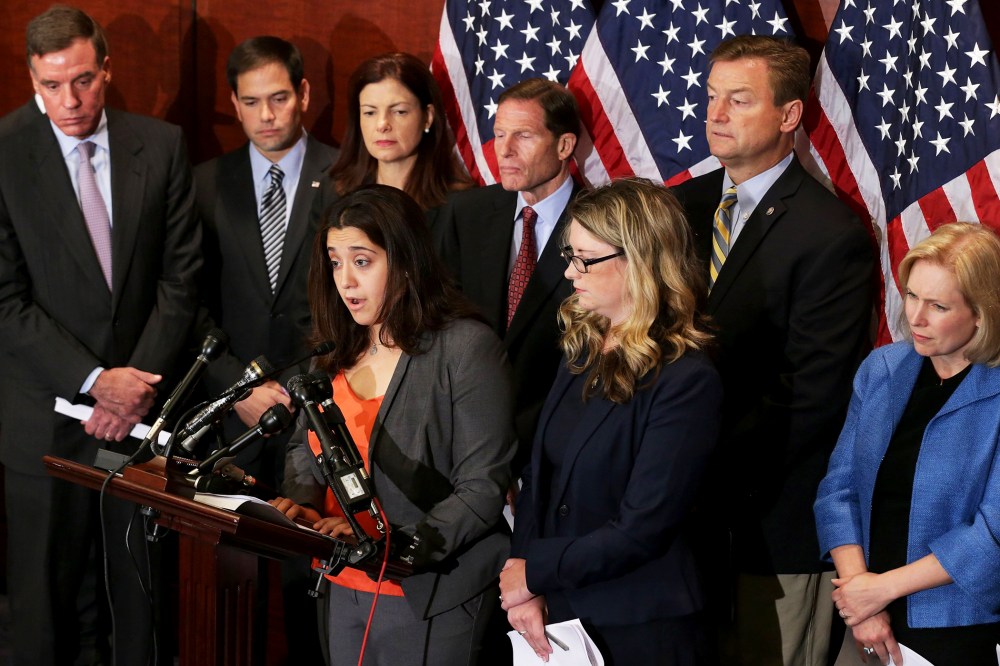A group of young women joined eight senators from both sides of the political aisle — including Sens. Claire McCaskill, D-Missouri, Kirsten Gillibrand, D-New York and Marco Rubio, R-Florida among others — to announce a bill aimed at making college campuses safer.

“We’re not going to legislate away sexual assault,” Annie Clark, a sexual assault survivor and co-founder of End Rape on Campus, said at a press conference Wednesday, “but we can make it better for the survivors coming forward, and this bill is an incredible first step in making that happen.”
The Campus Accountability and Safety Act will increase the possible penalties for schools that violate federal laws governing how colleges deal with sexual assault reports, require schools to provide each victim of sexual violence with a confidential advisor to help him/her understand his/her options, and require schools to use a uniform process for campus disciplinary proceedings – a measure aimed at removing university athletic departments from positions of power in cases involving student athletes.
Currently, schools that violate Title IX, the 1972 gender equity law that requires schools investigate all sexual assault reports, have faced only one potential penalty – the loss of all federal financial aid. This penalty has never been applied, and survivors of campus sexual assault have spoken out at Senate roundtables and hearings about the need for a broader range of penalties.
The new bill would allow the Department of Education to fine a school up to 1% of its operating budget for violating Title IX, a number that can add up quickly. “A school like Harvard could face a $42 million fine,” Gillibrand said Wednesday, which should be “a big incentive to follow the law.” And it will increase fines for schools that violate the Clery Act, which requires schools to report their crime statistics, from $35,000 to $150,000.
The measure will also require all schools to conduct climate surveys to gather data on the prevalence of sexual violence on campuses. Because sexual assault is under-reported in general – only one incident in 20 is reported – the information colleges and universities collect on reported assaults does not present an accurate picture of what students experience. When a White House Task Force on campus sexual assault released its report in April, it recommended schools start doing climate surveys and included resources for administrators to conduct them.
But even as colleges plot the best way forward, many schools are already resisting the idea of a mandate, and McCaskill clashed with a major higher education lobbying group over a survey she conducted of more than 400 colleges. She said Wednesday that schools have all the resources they need to conduct the surveys.












